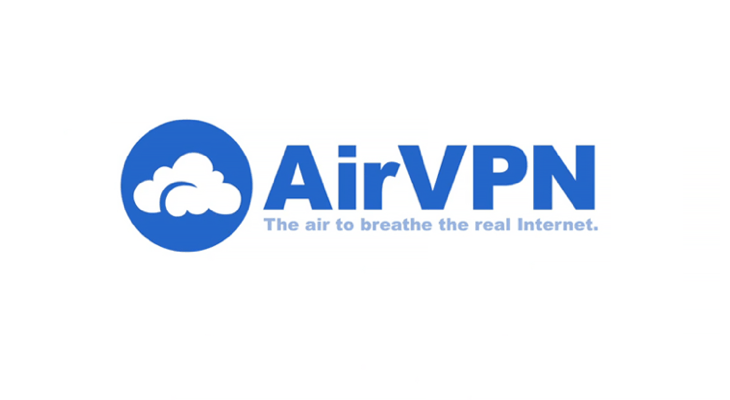If you are looking for a good VPN, then AirVPN is a reasonably-priced option in a crowded market.
The question is, is AirVPN all it's cracked up to be?
Will you be getting a reliable service that works consistently, with plenty of great features? Or a frustratingly slow network that keeps you from doing what you need to do?
If you are looking for an AirVPN review, read on as we explore what AirVPN is, what features it offers, and whether it lives up to its own marketing hype.
What Is AirVPN and How Does It Work?
AirVPN is a Virtual Private Network (VPN) service. In the world of VPNs, it is one of the good citizens in this growing market, which is one reason why they have some very loyal customers. But they also provide a pretty darn good service.
Before we continue on to the full AirVPN review, let us take a look at what VPNs are for the newbies reading this. (If you just want to read the AirVPN review, skip ahead to the next section.)
What is a Virtual Private Network (VPN)?
A Virtual Private Network is a service that provides privacy to people who want to surf the net anonymously.
The point of a Virtual Private Network (VPN) is to cloak your IP address. Your “IP address” (Internet Protocol Address) is the unique address that your Internet provider assigned to your home network. When you browse websites with your smartphone using your 3G, 4G, or 5G data, your telephone provider will also assign an IP address to your phone.
Every time you visit a website, your IP address is logged by the website server. It is like a public signature that tells people where website traffic is coming from.
While your IP address does not advertise to the outer Internet your personal name or address, it will often tell the websites you visit your approximate physical location.
The Internet provider who gives you your broadband service, however, may have a record of which IP addresses are assigned to specific accounts. Thus, when push comes to shove, if someone recorded some sort of complaint against your IP address for whatever the reason, it may come back to you.
Additionally, your Internet provider could be monitoring traffic through your IP address. While they are not likely to do this for your basic web browsing habits, they could potentially throttle traffic to certain websites or types of Internet protocols such as torrent.
Some people also are concerned that government agencies are monitoring people’s Internet surfing habits, and a VPN can add an extra layer of protection. Even spyware companies could be watching what you do online.
For these reasons, many people who believe that online privacy is important to use VPNs as a way to change their IP address and travel the web more anonymously.
If you want to comment anonymously on political boards, for example, without fear of retribution, then hiding your IP address is a good thing to do.
A VPN has other benefits, which we will get into shortly.
Virtual Private Networks and Location

Before we go into how the Virtual Private Network works on a practical level, let us talk a bit about location.
One of the greatest benefits of a VPN is that you can change your “location” by selecting a specific region or city using your VPN software.
Let’s say you are a Canadian and currently live in Detroit, Michigan, and you want to access Canadian television network websites. If you live in Detroit, you are basically right across the river from Canada and may have a lot of business to do in Canada.
Unfortunately, Canadian broadcast TV websites will often restrict their free streaming access to only people physically in Canada. Using a VPN, you could set your IP address to Toronto, Canada, and access those websites.
Whether or not you feel this is tricking the company and a no-no is up to you, but (and please check if you are unsure) this is not currently against the law (that we know of) as of this writing in most Western countries, at least.
How a VPN Works
A Virtual Private Network works in the following way:
You install VPN software, log in, and select a location (say, Toronto or Washington, DC). Once the VPN connects, all the traffic that goes through your computer will first go through the VPN, and then through the outer Internet.
Your Internet Service Provider could see that you logged into the VPN’s IP address, but they cannot track anything you do beyond that, other than to monitor your network packets directly (which they are not supposed to do).
Thus, when you go to a website, the IP address of the VPN location (or node) you chose will show up, and not your personal IP address.
This means, if you go to a weather website, the default weather that will show up will be the location of the VPN, such as Toronto. The timezone would be the timezone your VPN node is in.
What Makes AirVPN Unique
The reality is, a lot of VPN companies are run by small-time hucksters trying to make a buck. Their service may be OK, but they are just in it for the money and not because they have a passion for online privacy.
According to AirVPN, their service is:
“A VPN based on OpenVPN and operated by activists and hacktivists in defense of net neutrality, privacy and against censorship.”
AirVPN is so dedicated to privacy, they do not have the typical Google Analytics tracking codes embedded in their website, so even as a visitor to their home page, you get more privacy.
AirVPN also has a generous offering, which includes unlimited traffic and five simultaneous connections per user account.
Many other VPNs only offer one connection per account, at least at their basic level, and have a very limited amount of exit nodes. Many VPNs have a bandwidth limitation, which AirVPN does not have.
AirVPN has more than 60 virtual IP addresses to use from 20 different countries, including Canada, the United States, Japan, the United Kingdom, Switzerland, and Hong Kong.
Some of their technical features include IPv6 support so your v6 address won’t accidentally “leak,” an open source client, and high-level encryption: 4096 bit RSA keys size, AES-256-CBC Data Channel, HMAC SHA1 Control Channel.
AirVPN's Anti-Censorship Approach
AirVPN is against Internet censorship and georestrictions. They allow all protocols through their network, unlike some VPNs or Internet Service Providers. They use internal DNS root servers to avoid censorship by Internet “authorities” such as ICANN. They also offer port forwarding for peer to peer networking clients such as BitTorrent and eMule.
AirVPN's Advocacy Projects

AirVPN are supporters of net neutrality. They also help fund or develop projects, including the free “Mirrors” project offering mirror servers for software downloads, and they support the anonymous Tor network. The Net Neutrality Monitor analyzes and follows censorship initiatives undertaken by Internet Service Providers in an attempt to fight said censorship.
Other organizations they support in various ways include EDRi (protecting digital freedom), Access Now (a digital rights organization), and Apollo-NG Mobile Hackerspace (a self-sustaining and independent mobile hackerspace to connect hackers for collaboration purposes).
Pricing
AirVPN accepts payments in Euros, United States dollars, and Bitcoin. They also have a dynamic list of cryptocurrencies they accept, which is updated daily because it can change. These virtual currencies potentially include:
Litecoin (LTC), Ripple (XRP), Bitcoin Cash (BCH), BlackCoin (BLK), Dash (DASH), Decred (DCR), Dogecoin (DOGE), Ether Classic (ETC), Ether (ETH), Expanse (EXP), Goldcoin (GLD), NAV Coin (NAV), NEO (NEO), Namecoin (NMC), PIVX (PIVX), Peercoin (PPC), Vertcoin (VTC), Monero (XMR), VERGE (XVG), ZCash (ZEC), ZenCash (ZEN)
If you have a lot of Dogecoin lying around, you would be hard-pressed to find a place to actually spend it at, so you have to hand it to AirVPN for taking this literal joke of a cryptocurrency.
AirVPN has one pricing level as of this writing, which is their Premium account. The prices quoted here are only accurate as of this writing. Prices are based on euros, and therefore, the amounts listed for US dollars and Bitcoin are estimates only based on the current exchange rates:
Pricing in Euros
Pricing in United States Dollars
Pricing in Bitcoin
Public Perception (Other AirVPN Reviews)
AirVPN gets great reviews for its high-quality service and reasonable prices.
Douglas Crawford of Cloudwards wrote the following about AirVPN in a review on March 29, 2018:
“AirVPN not only has a fantastic attitude to privacy but has the technical know-how to back it up. Not only is genuine privacy possible thanks to the support for VPN through Tor, but in terms of speed and reliability no other provider really touches AirVPN.”
He gave AirVPN an average of 80 percent in his ratings, which covered everything from Pricing and Features (80 percent), Security (90 percent), and The Website and Customer Support (70 percent).
On the security issue, he explains:
“Also excellent is the use perfect forward secrecy, whereby a new and unique (with no additional keys derived from it) Diffie-Hellman key is generated for each session. This means that even if one session is somehow compromised, all others remain secure. To be honest, why every website and service on the internet does not use PFS is both a mystery and a disgrace, so well done AirVPN.”
How It Compares
AirVPN may not be the cheapest Virtual Private Network service on the block, but you often get what you pay for. Many of the super cheap VPNs have a lot of good features on paper, but, when push comes to shove, the connections are super slow or non-existent.
The last thing you want when you connect to a Virtual Private Network is one that drops the connection all the time, which then exposes you to the Internet and defeats the entire purpose of a VPN.
There are some other good, more reliable VPN companies out there, like Hide.me, but they can be even more expensive with fewer available nodes and a cap on bandwidth.
AirVPN seems to strike that nice balance between cost, features, and reliability.
What We Think
With a lot of shady VPN operations out there, you want to find one that actually does what it says it will do. AirVPN has a track record for being a legitimate Virtual Private Network provider, that got into the business for the right reason: privacy.
You can see from their very active Twitter account that they take what they do quite seriously. They update their account at least a few times per week if not multiple times per day. These tweets are not just marketing fluff but announcements that have to do with their service as well as Internet privacy news and advocacy.
Coupons and Deals

AirVPN may offer some coupons from time to time, but you would have to check their website or social media presence on a regular basis to find out about any deals. They do not offer a publicly available free trial account as of this writing. You are instructed to submit a request to the administrators via their online contact form to get a free trial.
Given that AirVPN offers a lot for their basic pricing, you are already getting a great deal from this highly rated VPN service.


In this AirVPN review, we’ll talk features, pricing, ease of use, supported devices, server locations, speed, security and customer service before giving our verdict. While we like the back end of the app a great deal, we have our reservations concerning the front.